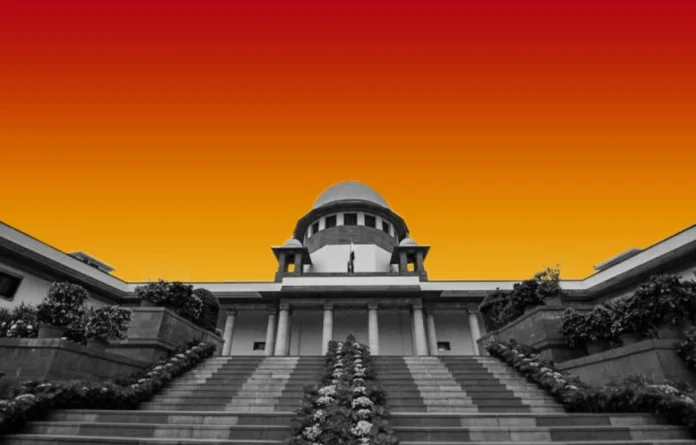The Supreme Court has issued notice to the Union of India on a Public Interest Litigation seeking adequate facilities for disabled prisoners in jails and full implementation of the Rights of Persons with Disabilities (RPwD) Act of 2016 in prisons across the country.
The Bench of Justice Vikram Nath and Justice Sandeep Mehta directed the Central government to file a reply within four weeks on the plea seeking necessary provisions in the existing Prison Act and Rules to address the special needs of disabled prisoners.
Citing the instances of treatment meted out to Professor GN Saibaba and Father Stan Swamy, the PIL, filed by public activist Sathyan Naravoor, highlighted the severe neglect of disabled prisoners and lack of disabled-friendly accommodation, washrooms and other facilities in jails.
Stan Swamy, arrested in connection with the Bhima Koregaon violence case, passed away in jail in 2021. Prof Saibaba, arrested in 2014 in connection with a Maoist link case, passed away in 2024, a few months after he was acquitted and released from prison.
The petition contended that the demise of Prof Saibaba, a scholar and human rights activist with disabilities, was directly attributable to his deteriorating health, exacerbated by prolonged incarceration and the inhumane conditions of his detention. Stan Swamy also struggled with disability due to Parkinson’s syndrome and died while in prison. He was denied medical treatment and basic support, it alleged .
Appearing for the petitioner, Advocate Kaleeswaram Raj apprised the Bench that even after more than eight years of enactment of the RPwD Act, 2016, most State prison manuals still did not include mandatory provisions for ramps and other essential accessibility measures.
It said the ongoing failure severely impacted the basic mobility of disabled prisoners within prison premises, directly violating the statutory requirements of the Act.
The petition drew the Court’s attention to the lack of infrastructural facilities such as ramps, accessible toilets and disability-friendly accommodations in most Indian prisons.
It said PwD prisoners often depended on others for assistance with daily tasks. Lack of adequate facilities in prisons placed them at a significant disadvantage compared to non-disabled inmates. For example, paraplegic inmates required housing accommodations, toilets and accessibility measures specifically tailored to their needs.
Inmates with mobility issues encountered difficulties in using standard toilets and showers. Their wheelchairs may often not fit within the standard Indian prison cells, especially “Anda” (egg-shaped) cells. These prisoners may require specific medical care related to their disabilities, such as physiotherapy and physical assessments, which were often difficult to provide in a prison setting, it added.
The PIL contended that countries like the US and the UK have comprehensive laws ensuring accessible and humane treatment of disabled prisoners.
It further mentioned India’s commitments under the United Nations Convention on the Rights of Persons with Disabilities (UNCRPD) and the Nelson Mandela Rules, which mandated equitable access to prison facilities for disabled individuals.
There should be similar legislative and administrative reforms in India to bring its prison system in line with global human rights standards, it noted.


